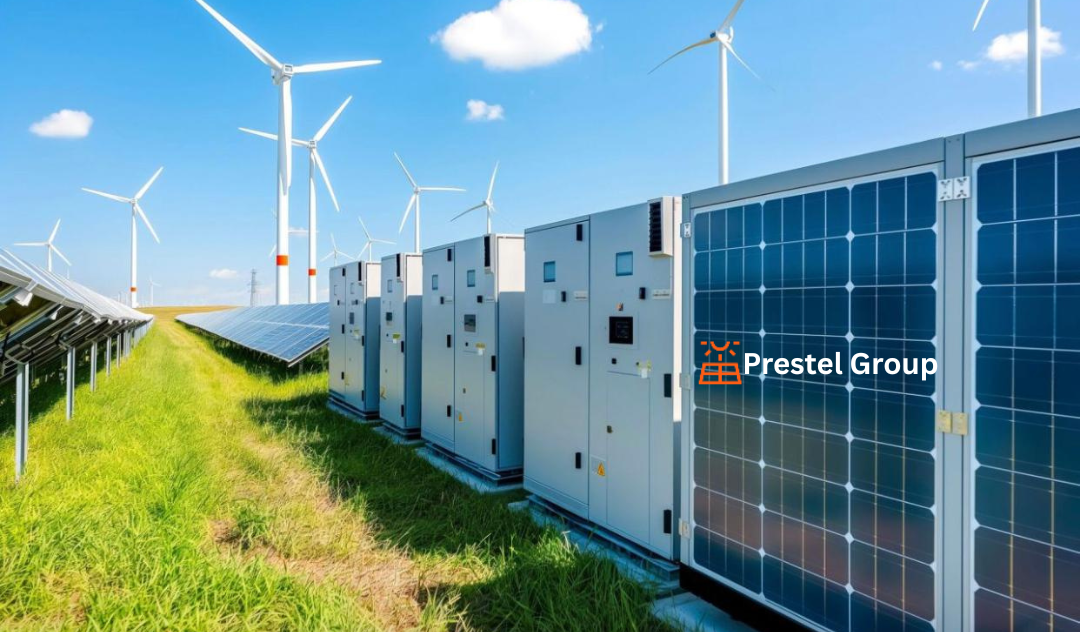Bridging the Energy Divide: Smart Grids and Cloud-Based Telecom Power the Future of Remote Electrification in the U.S. and Australia
Published by Prestel Group on Saturday, February 1, 2025 at 05:29:03 PM UTC

Families in a remote township in Western Australia.
Prestel Group has been redefining energy access and telecommunications infrastructure in underserved and off-grid regions of the U.S. and Australia since launching in 2015. The company sees itself equally as a technology innovator and a developer of next-generation energy systems. The board includes notable clean energy leaders and sustainability champions across the globe. Executive Director Lauren Mitchell spoke with CleanTech Review to share insights on the company's expanding impact.
Why deploy smart grid and telecom solutions in the U.S. and Australia?
“Our model works best in areas where traditional infrastructure hasn't reached or failed to scale,” Mitchell explains. “The bushlands of Western Australia and pockets of the rural U.S.,from the Appalachians to Navajo Nation face real barriers to grid access and modern communication tools. That's where we step in.”

The board of Prestel had prior experience working in Indigenous and rural territories with community solar cooperatives. Their early work focused on portable hybrid solar units that offered limited power for lighting and phone charging. However, they soon recognized the need for scalable, community level electrification that supported both households and small businesses.
In 2017, they deployed their first smart-grid installation in northern Queensland. The site now powers dozens of homes, a small clinic, and a community center all linked through Prestel's cloud-managed platform that also supports broadband internet and mobile connectivity. The economic case for full grid extension was weak, but Prestel's systems offered a cost-effective, modular solution that could grow with the community.
What makes the model different?
Unlike urban-focused energy projects, Prestel integrates telecommunications with renewable power systems, creating hybrid micro-networks that serve both power and connectivity needs. “The synergy between telecom and solar makes our solutions sustainable. In some ways, these rural markets are more willing to embrace innovation than over-regulated metro areas,” Mitchell says.
This dual approach is especially effective in regions with sparse population density. Customers can prepay for electricity and data packages using digital wallets or SMS-based tokens. Prestel's proprietary Orion™ platform manages user accounts, monitors load demand, and allows real time troubleshooting all from a centralized hub.
“Customers in remote Montana, for instance, use their phone to top up their Prestel account,” she adds. “That triggers Orion to activate circuits and power their home and internet. It's efficient and reliable, especially during winters when physical access can be difficult.”
What does productive electricity use look like in these markets?
Prestel promotes economic development alongside electrification. “We want our customers to generate income from the electricity they use,” Mitchell emphasizes. “That makes the service sustainable on both ends.”
One flagship initiative, AgriPower, helps small-scale farmers in Victoria and rural Texas leverage solar power for irrigation, refrigeration, and crop monitoring. Participants are provided with solar-powered cold storage units, soil sensors, and training in climate-smart farming techniques. Prestel also connects them to regional co-ops and wholesale buyers.
Mitchell recounts a story from New South Wales: “A family that had been trucking vegetables over 80 kilometers to reach a market is now storing produce on-site, processing orders digitally, and selling locally, thanks to our systems.”
What's next?
“Our mission is not just to power homes but to power potential,” says Mitchell. “Whether it's a school in Arizona getting online learning or a farming family in the outback keeping produce fresh, access to clean energy and telecom unlocks opportunities.”
As Prestel continues to expand its footprint across Indigenous communities in Australia and rural townships in the U.S., it remains committed to innovation, equity, and environmental resilience.